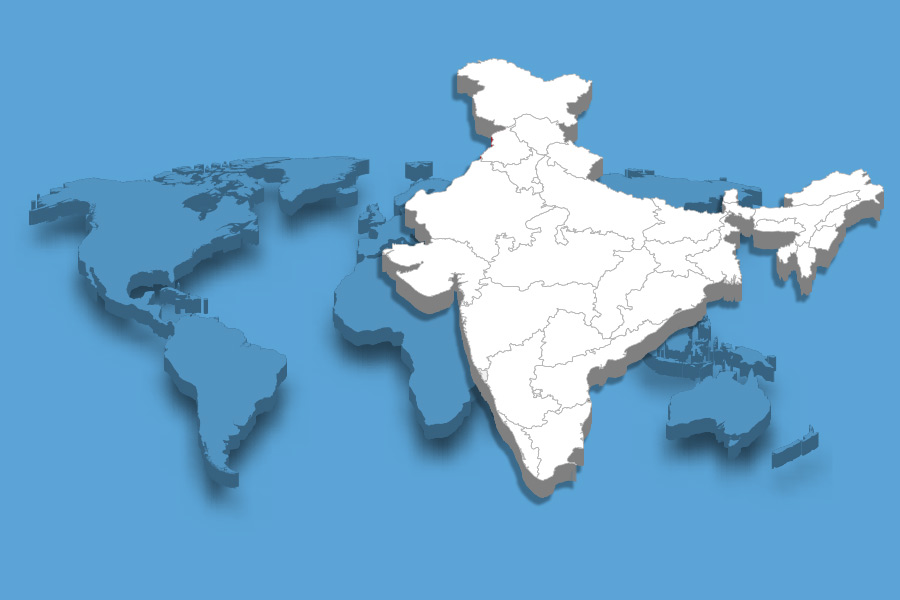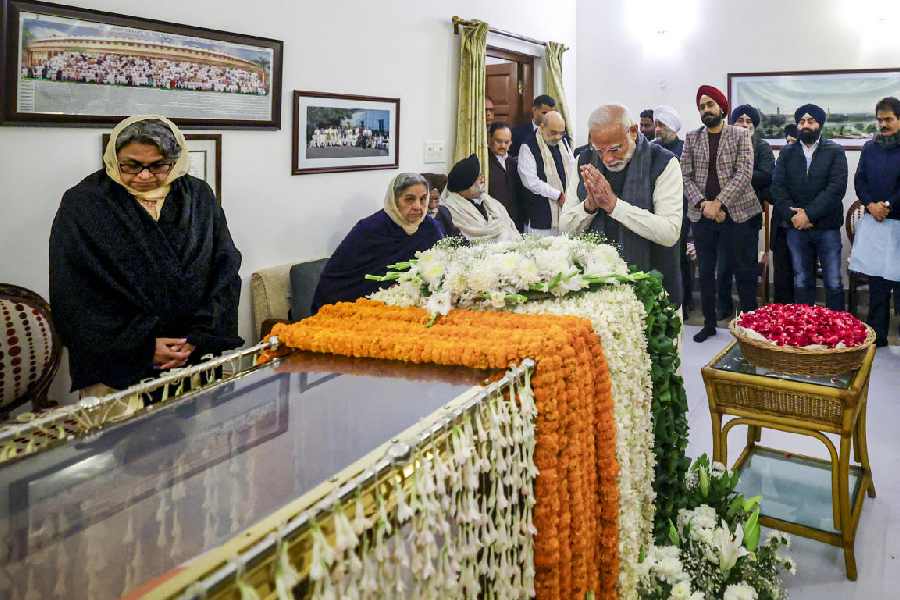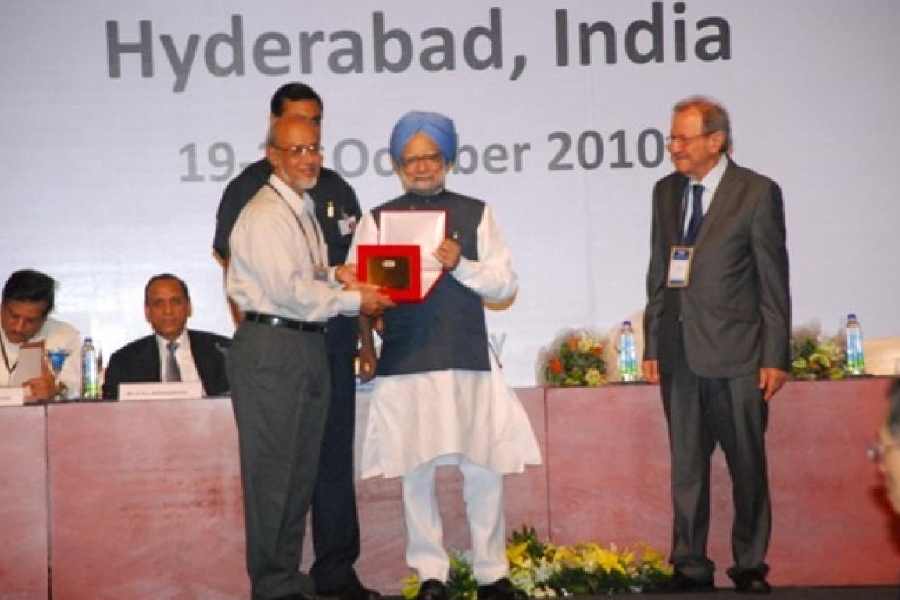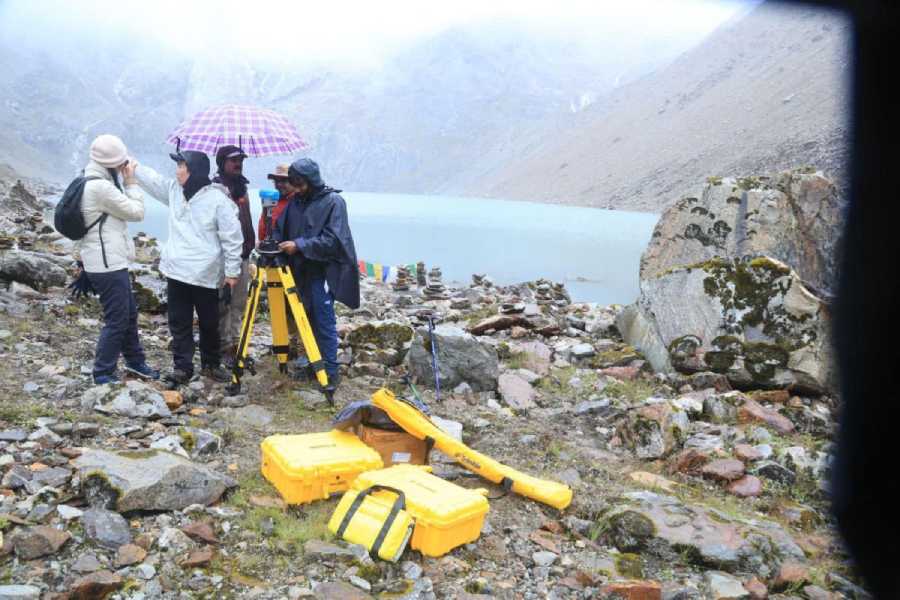Critics are always complaining foreigners just don’t “get” India. Now, the Adanis and other players are throwing big money at changing global perceptions. The Adanis are launching a think-tank, named the Chintan Research Foundation, which will have Rs 100 crore in seed capital alone. It’s a massive budget that the Adani Group is hoping will set the stage for a whole new narrative about India and the global south as the Modi government begins an expected third term.
Cut to London where another think-tank, the International Centre for Sustainability (ICfS), started up a few days ago. Its ambitious goal is to “be the interface between the West and India”. The ICfS is also lavishly funded and has taken a 5,000sq-ft office over three floors near Monument in the heart of the City of London.
“The West has been misinterpreting India,” says Sachin Nandha, ICfS trustee, founder and director. “The India that people still have in their minds is the India of 15-20 years ago and maybe even longer. They haven’t updated what India represents.”
On a more modest scale, meanwhile, Pankaj Saran, an ex-foreign service officer, is now the Convenor of Natstrat, which bills itself as “a Delhi-based independent Centre for Research on Strategic and Security Issues”. Saran was a deputy national security advisor till 2021 and has been holding regular online interviews with other retired foreign service officers and security experts who offer, “insights into geopolitics, technology and national security”.
These think-tanks are aiming at having a global reach and want to make their influence felt strongly, especially in the Western world. The Chintan Foundation will be headquartered in Delhi and will have offices in London, New York and other Indian cities like Bangalore. It will aim to speak up for the interests of India and the global south. Initially, it will focus on areas like climate change, energy transition and, of course, international finance.
The Chintan Research Foundation’s aim of advocating for the global south chimes with Prime Minister Narendra Modi’s pitch at last year’s G20 summit in New Delhi for India to be “the voice of the global south.”:
The Adanis say their relationship with the foundation will be strictly arms’ length and that their role will be restricted to funding the institute whose research will be initially focused on climate change and energy transition, geopolitics and economy and trade. The foundation also aims to change the lens through which outsiders view India in global platforms like the UN and World Trade Organization. Headhunters are now scouring India and abroad for top-rated intellectuals and geo-political experts who would fit the foundation’s bill.
Crucially, the group feels that despite its size and economic heft, India’s voice is not properly heard around the world. Says one academic close to the foundation: “Today, most of the conversation about global climate change and geopolitical interests emanates from Western countries and does not necessarily represent the interests of India or the global south. This think-tank will try and fill that void.”
While supplying the initial funding of Rs 100 crore, the group hopes the foundation will get revenue independently. Dhirubhai Ambani’s Reliance group set up the Observer Research Foundation (ORF) think-tank in 1991. While it’s built up a group of financial backers and says it’s an independent group, it still gets a big chunk of its funding from Reliance.
Similar ideas about the West’s domination in the realm of ideas hold the floor at ICfS. “There weren’t any independent European or British institutions looking and understanding the amazing phenomenon that’s India.” says ICfs’s Nandha.
“I could see that our civil service, our political leaders had a very limited understanding of India… and we felt that was leading to some bad decisions,” says Nandha, who’s busy organising panels and roundtable events to make the new organisation’s presence felt (it launched formally on April 10).
Along with themes that include emerging technology and its effect on democracy, the ICfS has another key aim: that of bringing India, Europe and the US closer together. Says Nandha: “We want to be the interface between the West and india. And we’re fundamentally pro-democratic. We have a full-time researcher just focusing on democracy both in a European context and in an Indian context.”
Nandha, who’s an NRI born and brought up in Britain, insists that despite the two countries’ links for over two centuries, there’s still only a superficial understanding of India in Britain. The same, he adds, is probably true from the Indian side.
Significantly, he adds that thinking in the West hasn’t kept pace with the changes that have taken place in India in recent decades. He argues part of the blame for the situation must fall to India which hasn’t managed to communicate the changes that have shaken up the country in recent decades.
For Nandha, ICfS has been a long-term project that’s been on his mind for the last seven or eight years. But he actually began working on it during the last nine months. He has already hired researchers who will look at key sectors like ecology and environment. Besides that, they’re also looking at reforestation and water conservation and even animal rights. Says Nandha: “Our role is to make sure India and the West are collaborating at every level.”
It shouldn’t be surprising that there are question marks above these think-tanks. The Adanis are, for instance, despite their insistence that they will be hands off, are known to be extremely close to the current government. And ICfS has Shaurya Doval as one of its fellows. Doval’s the son of National Security Advisor Ajit Doval. He’s also the key figure running Delhi-based rightwing think-tank, the India Foundation.
Nandha insists that,despite such associations, ICfS is totally clear of any government links. “The short answer is no (to any political links). Shaurya is very good like that. He understands that we have a very different agenda. We’re not wedded to any political party at all, here or there.” He points out that Shaurya Doval’s role at the foundation is as a fellow who will look at the “political economy side of things.”
Nevertheless, ICfS has been quick to stand up for the government like during the time when Indian agents were accused of shooting Hardeep Singh Nijjar outside a Canadian gurdwara. “Justin Trudeau’s accusation last week that India was responsible for the assassination of the Khalistani Hardeep Singh Nijjar in Canada may go down as one of the most detrimental foreign policy gaffes of the decade.” said a hard-hitting piece by Charlotte Littlewood, head of UK-India Relations. Another piece went into details about the Ram Temple and the fight to build it.
As for Saran, he has always been a career diplomat who has held key posts in Washington and was the ambassador to Bangladesh and Moscow. He was also the deputy national security advisor to the current government from 2018 to 2021 and understands its thinking.
Building a think-tank that churns out relevant ideas is a tough game. Ask Nitin Pai, co-founder and director of Bangalore’s Takshashila Institution. Over the last 14 years Pai has built up Takshashila into a formidable institution with expertise in several fields. It has also turned itself into a school of public policy and has around 1,000 people graduating from it annually. “Today we are India's largest school of public policy by numbers,” says Pai. Right from the start, Takshashila decided not to take foreign money so it has avoided trouble with the government on that score.
Can India sell its ideas to the world? Pai says so far it isn’t happening. Says Pai: “If you look at the trade balance of ideas, the trade balance is still not in our favour. We are still a net importer of ideas on global issues and public policy. I think we need to change that trade balance of ideas.”
The new think-tanks that are rolling into the battlefield of ideas are attempting to do just that.











